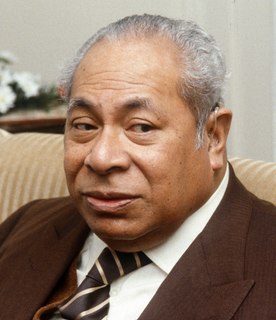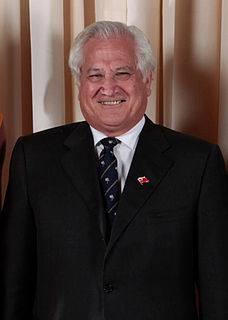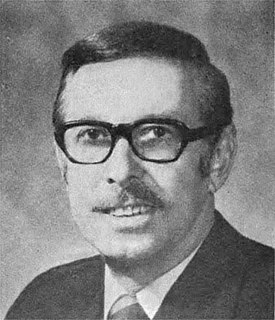Related Research Articles

Tonga, officially named the Kingdom of Tonga, is a Polynesian country and archipelago comprising 169 islands, of which 36 are inhabited. The total surface area is about 750 square kilometres (290 sq mi) scattered over 700,000 square kilometres (270,000 sq mi) of the southern Pacific Ocean. As of 2016, the state had a population of 100,651 people, of whom 70% reside on the main island of Tongatapu.

Annette Lu Hsiu-lien is a Taiwanese politician. A feminist active in the tangwai movement, she joined the Democratic Progressive Party in 1990, and was elected to the Legislative Yuan in 1992. Subsequently, she served as Taoyuan County Magistrate between 1997 and 2000, and was the Vice President of the Republic of China from 2000 to 2008, under President Chen Shui-bian. Lu announced her intentions to run for the presidency on 6 March 2007, but withdrew to support eventual DPP nominee Frank Hsieh. Lu ran again in 2012, but withdrew for a second time, ceding the nomination to DPP chairwoman Tsai Ing-wen. She lost the party's Taipei mayoral nomination to Pasuya Yao in 2018, and stated that she would leave the party. However, by the time Lu announced in September 2019 that she would contest the 2020 presidential election on behalf of the Formosa Alliance, she was still a member of the Democratic Progressive Party.

Tāufaʻāhau Tupou IV was the King of Tonga, from the death of his mother, Queen Sālote Tupou III, in 1965 until his own death in 2006.

George Tupou V was the King of Tonga from the death of his father Tāufaʻāhau Tupou IV in 2006 until his own death six years later.

The Lau Islands of Fiji are situated in the southern Pacific Ocean, just east of the Koro Sea. Of this chain of about sixty islands and islets, about thirty are inhabited. The Lau Group covers a land area of 188 square miles, and had a population of 10,683 at the most recent census in 2007. While most of the northern Lau Group are high islands of volcanic origin, those of the south are mostly carbonate low islands.

Feleti Vakaʻuta Sevele, Lord Sevele of Vailahi was the Prime Minister of the Kingdom of Tonga from 30 March 2006 to 22 December 2010.

The prime minister of Tonga is the country's head of government. Tonga is a monarchy with the king, currently Tupou VI, former prime minister, as head of state. The current prime minister is Pōhiva Tuʻiʻonetoa, in office since 8 October 2019 following the death of ʻAkilisi Pōhiva on 12 September 2019.

Lester Lionel Wolff is a retired American politician and former Democratic member of the United States House of Representatives from New York. He served as president of the International Trade and Development Agency. In 2014, Wolff accepted the Congressional Gold Medal, the highest civilian award in the United States, on behalf of the World War II members of the Civil Air Patrol. Wolff is currently the oldest living former member of the House of Representatives.
Founded by Rabbi Arthur Schneier in 1965, the Appeal of Conscience Foundation is an interfaith partnership of corporate and spiritual leaders from all faiths who come together to promote “peace, tolerance and ethnic conflict resolution.”

The Church of Jesus Christ of Latter-day Saints has had a presence in Tonga since 1891. The Tongan Mission was organized in 1916. However, due to anti-Mormon rumors and government policies, the LDS Church did not grow steadily in Tonga until 1924. Between 1946 and 1956, church leaders published Tongan translations of the scriptures and built a church-sponsored school known as the Liahona School. In 1968, Tonga's first LDS stake was organized and the Nuku'alofa Tonga Temple was dedicated in 1983.

Samiuela ʻAkilisi Pōhiva was a Tongan pro-democracy activist and politician. Pohiva, the leader of the Democratic Party of the Friendly Islands (DPFI), served as the Prime Minister of Tonga from 2014 to his death in 2019. He was only the fourth commoner to serve as Prime Minister, and the first commoner to be elected to that position by Parliament rather than appointed by the King.

Sēmisi Kioa Lafu Sika is a Tongan politician, businessman, and Member of the Tongan Parliament since 2010. He served as acting prime minister in September 2019, following the death of ʻAkilisi Pōhiva. He is currently leader of the Democratic Party of the Friendly Islands.

Siale ʻAtaongo Kaho, Lord Tuʻivakanō is a Tongan politician who served as the Prime Minister of Tonga from 2010 to 2014.

Siosaʻia Lausiʻi, but since his installation on 30 Oct 1997 with the noble title 10th Maʻafu, better known as Lord Maʻafu, is a Tongan politician, former military officer, and member of the Tongan nobility.

The 2019 Pacific Games was the sixteenth edition of the Pacific Games. The Games were held in Apia, Samoa, returning there for the first time since 2007. It was the third time overall that the Pacific Games were held in Samoa.
Fakahau Valu is a former Tongan rugby union player. He played as a flanker. He made his debut against the Māori All Blacks in 1973. Valu captained Tonga at the 1987 Rugby World Cup, he played his last game against Ireland. He was a member of the Tongan squad that handed Australia a shocking 16-11 defeat on June 30, 1973 at Ballymore Stadium. Valu was inducted into IRB's Pathway of Fame. In 2008, Valu was awarded with the Order of Queen Sālote Tupou III and a year later, he was inducted to the Tongan National Sports Hall of Fame along with Kitione Lave, Paea Wolfgram, Taufa'ahau Tupou IV, Tali Kavapalu and Motuliki Kailahi. Valu is also a member of the organising committee for the 2019 Pacific Games.

India–Tonga relations refers to the international relations that exist between India and Tonga. The High Commission of India in Suva, Fiji is concurrently accredited to Tonga.

The 2019 Nobel Peace Prize was awarded to the Prime Minister of Ethiopia Abiy Ahmed Ali "for his efforts to achieve peace and international cooperation, and in particular for his decisive initiative to resolve the border conflict with neighbouring Eritrea." The award was announced by the Norwegian Nobel Committee on 11 October 2019.

Saia Ma’u Piukala is a Tongan politician, surgeon, and former Cabinet Minister. He served as Minister of Health from 2014 to 2019.

Sione Vuna Fa'otusia is a Tongan politician, Cabinet Minister, and Member of the Legislative Assembly of Tonga.
References
- ↑ "World Peace Prize Awarding Council Issues Statement at 30th Anniversary" . Retrieved 2020-09-30.
- ↑ "World Peace Prize since 1989" . Retrieved 2020-09-30.
- ↑ "Past Recipients". www.worldpeaceprize.net. Retrieved 28 February 2019.
- ↑ Crocombe, R. G. (2007). Asia in the Pacific Islands: Replacing the West. ISBN 9789820203884.
- ↑ Maeder, Jay (21 November 1997). "THE NEWSREEL". NY Daily News. Retrieved 28 February 2019.
- ↑ Field, Michael J. (27 November 1997). "Tonga silent on contract with Korean group to build nuclear waste plant". Pacific Islands Report. Archived from the original on 7 July 2018. Retrieved 28 February 2019.
- ↑ "Peace Prize not a hoax, says aide to Annette Lu". The China Post . 14 December 2001. Retrieved 28 February 2019.
- ↑ Chu, Monique (14 December 2001). "'Next' magazine article slams Lu, peace prize award". Taipei Times . Retrieved 28 February 2019.
- ↑ "Moonies give Tonga patrol boats, Buddhists give king award | WWRN - World-wide Religious News". wwrn.org. AFP. 3 July 2001. Retrieved 28 February 2019.
- ↑ "伍爾夫:呂秀蓮獲和平獎 實至名歸" [Wolff: Annette Lu won the peace prize]. Liberty Times (in Chinese). 15 December 2001. Retrieved 28 February 2019.
- ↑ "2011 Awards" . Retrieved 2020-10-31.
- ↑ Word Peace Prize Awarding Council (2011). World Peace Prize 2011 Award Ceremony (PDF). Washington D.C.: World Peace Prize Awarding Council. pp. 12–13.